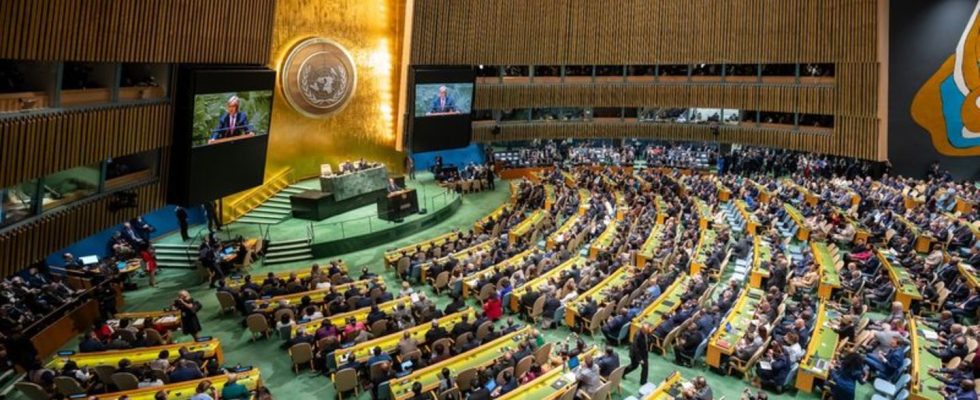Artificial intelligence
UN General Assembly approves first resolution on AI
UN Secretary-General António Guterres has warned several times about the dangers of the technology. photo
© Michael Kappeler/dpa
The United Nations has been concerned with the opportunities and dangers of artificial intelligence for a long time. Now the UN General Assembly has passed a paper on this for the first time.
The general assembly of the The United Nations has passed a resolution on artificial intelligence for the first time. The paper introduced by the United States was adopted in New York.
The text states that the rapid development of AI requires international rules and enables cooperation, especially with poorer countries. A global consensus on “secure and trustworthy artificial intelligence systems” must urgently be achieved. The paper condemns the misuse of AI.
Hope and worries
After months of negotiations among diplomats, the draft had already been accepted in the largest UN body without any further suggestions for changes. This made it possible for the general assembly with its 193 members to adopt it unanimously by consensus without a formal vote. General Assembly resolutions are not legally binding.
Artificial intelligence usually refers to applications based on machine learning. The rapid development of increasingly powerful software offers huge opportunities and fuels hope for great progress in the fight against diseases such as cancer or problems such as the climate crisis. At the same time, there are concerns that powerful applications could cause great harm if left unregulated.
AI systems divided into risk groups
UN Secretary-General António Guterres had already warned several times about the dangers of the technology and convened a group of experts to advise the United Nations on the topic. The UN Security Council has also already addressed the issue.
In the middle of the month, the EU Parliament gave the green light for stricter rules for artificial intelligence in the European Union. According to Parliament, this is the world’s first AI law. Accordingly, AI systems should be divided into different risk groups in the future. The higher the potential dangers of an application, the higher the requirements should be.

